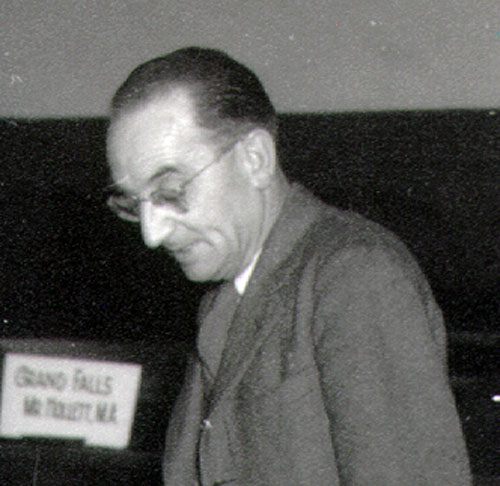Joseph R. Smallwood
Born Gambo, 1900; Methodist (United Church)

Courtesy of Archives and Special Collections (J.R. Smallwood Collection 075, Photo 5.05.296), Queen Elizabeth II Library, Memorial University of Newfoundland, St. John's, NL.
Smallwood grew up in St. John's as part of a middle-class family. Although he had no formal education after finishing high school, he read very widely and was self-educated. During the 1920s and 1930s he worked as a newspaper journalist and a radio broadcaster and was the author of several books. He was also involved in the labour movement, helping to organize unions. Before being elected a member of the National Convention, he operated a pig farm on the air base at Gander.
Smallwood was intensely nationalistic, and he devoted most of his writing to giving Newfoundlanders the self-confidence he felt they would need if they were to overcome the obstacles in their lives. Smallwood was then politically left of centre. He had become familiar with socialist writings from friends in the Newfoundland labour movement and during the brief periods that he lived in England and New York. He hoped to create a better life for working-class Newfoundlanders.
It is not clear when Smallwood decided that joining Canada would be best for Newfoundland, but it was before the announcement of the National Convention. In part, this was opportunism; fighting for confederation offered him a good chance at a political career, and Smallwood was ambitious. He also hoped that confederation would provide a social safety net that would ease the worst of Newfoundland's poverty and provide the support necessary for industrialization.
After confederation, Smallwood served as premier of the new province from 1949 to 1972. He used the government to build roads and schools to create a more employable workforce, and encouraged new industries.




